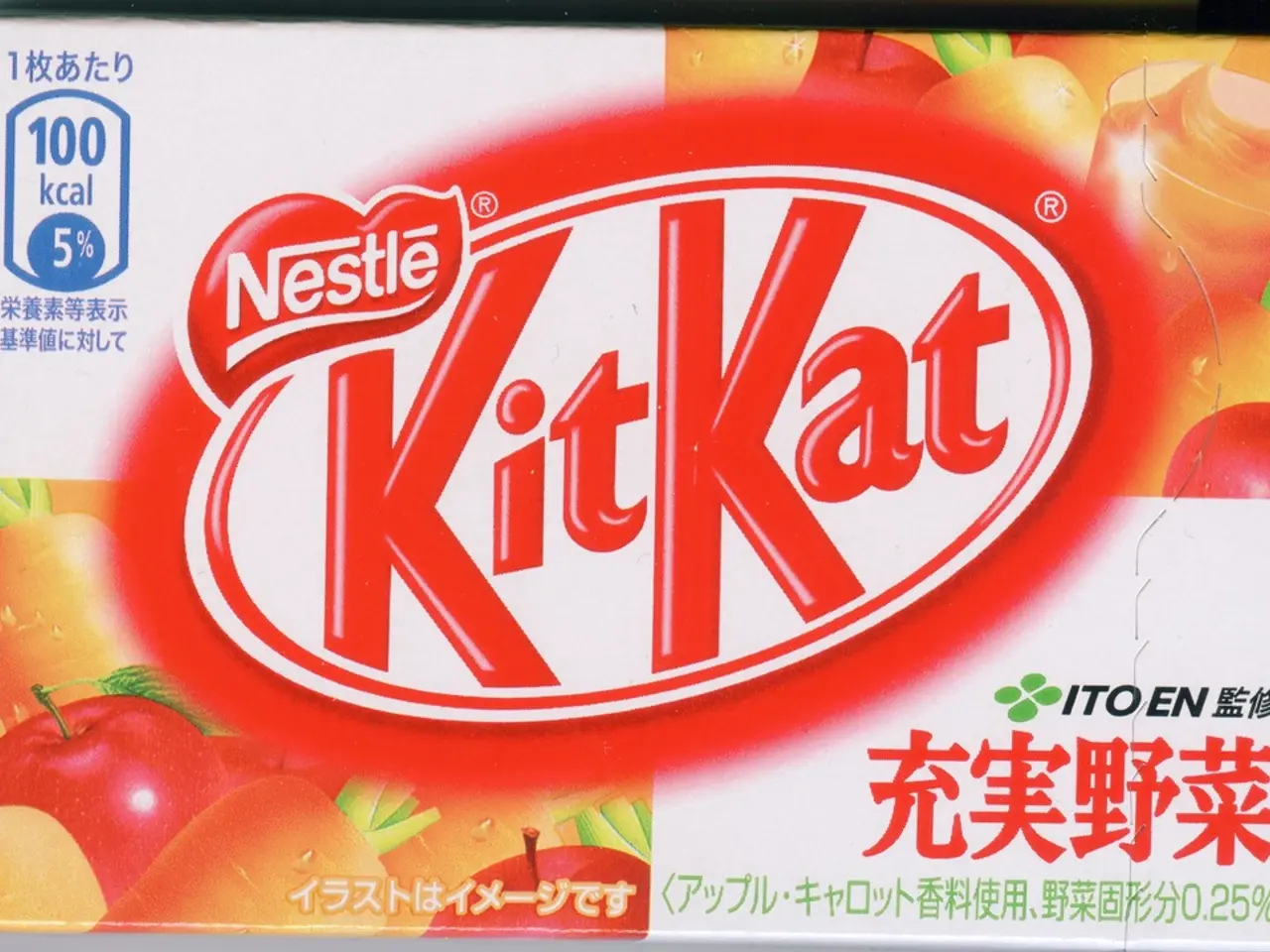Innovation Unveiled: Vegan Cheese Produced Without Using Cow's Milk
In a groundbreaking development, Danish researchers have genetically modified E.coli bacteria to produce casein, a key protein found in dairy products. This innovation could potentially revolutionise the vegan food market by addressing one of its major flaws: the nutritional content of vegan alternatives.
### Macronutrients
Vegan cheese, typically made from nuts, coconut oil, soy, or root vegetables, and animal-based cheese (usually dairy from cows, goats, or sheep) differ significantly in their nutritional profiles.
- **Protein:** Dairy cheese is a high-quality, complete protein source, providing all essential amino acids in ideal proportions. Vegan cheese generally contains less protein, and the protein quality may be lower unless carefully formulated, especially with soy or pea protein bases. - **Fat:** Vegan cheeses often use plant-based oils (like coconut or palm oil), which can be high in saturated fats, similar to some animal-based cheeses. However, many vegans consume less saturated fat overall compared to omnivores, as dairy is a major contributor to saturated fat intake. - **Carbohydrates:** Vegan cheese can have higher carbohydrate content, especially if made from starchy bases, while dairy cheese is virtually carb-free apart from lactose. - **Fiber:** Vegan cheese, depending on ingredients, may offer some dietary fiber (unlike dairy cheese, which has none), though this is not always significant due to the refining of many plant-based ingredients.
### Micronutrients
- **Calcium:** Dairy cheese is a major dietary source of calcium, while most vegan cheeses are fortified to match this. Without fortification, calcium intake may be lower in vegan cheeses. - **Vitamin B12:** Dairy contains small amounts of vitamin B12, a nutrient lacking in unfortified vegan cheeses. Many vegan cheeses are fortified with B12 to address this gap. - **Other Vitamins/Minerals:** Vegan cheeses may provide more folate, magnesium, and iron, especially if made from whole plant foods, but could lack adequate riboflavin, vitamin A, and vitamin B6 unless fortified. - **Iodine:** Dairy products are a significant iodine source, while vegan cheeses may be lower unless specifically fortified.
### Health Impacts
- **Saturated Fat:** Both types can be high in saturated fat, depending on formulation. Traditional dairy cheese is inherently rich in saturated fat, while some vegan cheeses use coconut oil, which is also saturated. Health-conscious consumers should check labels for both. - **Dietary Acid Load:** Animal-based foods like dairy cheese increase dietary acid load, potentially linked to inflammation and weight gain. Plant-based alternatives tend to lower acid load, supporting a more alkaline body environment. - **Allergens:** Dairy cheese can trigger allergies or lactose intolerance; vegan cheese avoids these but may contain nuts or soy allergens.
### Environmental Impact
- **Greenhouse Gas Emissions:** Vegan cheese typically has a much lower environmental footprint than animal-based cheese, which is tied to resource-intensive livestock farming and high greenhouse gas emissions. - **Sustainability:** Vegan options generally align with lower resource use and reduced environmental impact.
In summary, the development of vegan cheese with similar nutritional content to animal-based cheese is a significant milestone in the vegan food market. If patented, this innovation could lead to the production of vegan cheese that closely resembles the nutritional composition of the original. This breakthrough is currently pending at the patent office, and the synthetic casein production enables the creation of vegan cheese without the use of cow's milk. The release of this vegan cheese is a genuine scientific breakthrough that could potentially address the nutritional content gap in vegan alternatives and cater to the growing number of people who miss dairy products like yogurt, quark, and milk drinks.
- This groundbreaking innovation could potentially improve the nutritional quality of vegan food-and-drink, particularly in health-and-wellness categories like food-and-drink, by creating vegan cheese with a similar nutritional composition to animal-based cheese.
- Such a development could particularly address the lower protein quality and nutritional gaps in vegan cheese, which may be lower in essential amino acids and certain micronutrients like calcium and vitamin B12 found in animal-based cheese.
- Furthermore, this scientific advancement in other science sectors, such as genetics and biotechnology, could contribute to a broader shift in the vegan lifestyle by offering healthier and more nutritious plant-based food alternatives that closely resemble their animal-based counterparts.




